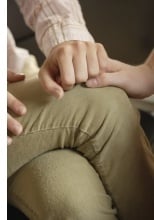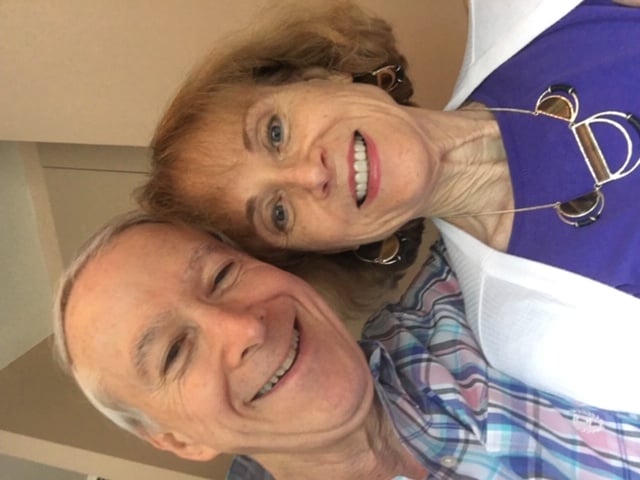 In Epidemics, Hippocrates said, “Make a habit of two things–to help, or at least to do no harm.” How can we apply that idea to helping family and friends with addictions?
In Epidemics, Hippocrates said, “Make a habit of two things–to help, or at least to do no harm.” How can we apply that idea to helping family and friends with addictions?
When we care about individuals who are trying to overcome addictions, we often face dilemmas in how best to help them. For instance, if I help someone by providing money for some critical need, am I supporting recovery by preventing some degree of “disaster”? Or am I just shielding the person from negative consequences that might motivate lasting behavior change? The latter, of course, is AKA the E word: Enabling. This article will identify some things to consider when you face that kind of decision.
What is support? I suggest that support, at its root, consists of two things: paying attention and active helping. I could pay attention to a friend who wants to quit smoking by listening to her talk about her cravings to smoke and how she copes with these cravings. I could actively help her by informing her of new tobacco cessation products (if she was unfamiliar with them). I could take her to a SMART Recovery® meeting (especially if she felt awkward going alone), or spend a non-smoking evening with her (when her other options were to be alone or be with smokers).
How does support differ from enabling? One aspect of support–paying attention– is unlikely to shield someone from negative consequences. I probably am not making matters worse by complimenting successes or joining in celebrating them. It’s unlikely to cause harm if I take time to brainstorm alternative activities, take time to listen about stresses, express confidence in future success, or just listen to the ups and downs of the process of change.
Because paying attention is unlikely to harm, I encourage significant others, even if they are ready to cut off other forms of helping, to continue paying attention: “Son, your mom and I are drawing a line. We have provided money for bail, for attorneys, for treatment, for rent, for food, on and on. We have decided to stop, because we honestly don’t think it is really helping. We help you out of a crisis, but as soon as you are out of it, you go back to using. We think you have major addiction problems, but it’s up to you to decide how to live. We think maybe you need to get yourself out of your crises, that maybe that’s what’s needed to persuade you to change. But we are not ending our relationship with you. We still want to see you and talk with you, every day if you want. We hope you will see that we still love you deeply, and we hope our love will help. But you are going to need to solve your own problems from now on.” Note that although this statement may contain elements of “preaching, complaining, criticizing, and nagging,” they are not prominent. The addiction is discussed directly, but not judgmentally.
If we distinguish between paying attention and active helping, it becomes possible to maintain some type of relationship with the addicted individual, to the extent that both parties will make time for it. It is not necessary for a family to tear itself apart over an addiction issue, although this often happens. It is important for the family to make an early distinction between paying attention and active helping, before painful feelings build up. Even though the addiction may continue for awhile, the presence of valued relationships may be the key element of a later cost-benefit analysis, when the individual decides that these relationships are actually more valuable than getting high. If the relationships are not present, the individual is another step closer to the suicidal types of addictive behavior that arise when there is “nothing left to lose.”
Paying attention is unlikely to cause harm, but active help could either support or enable. It depends completely on the specific situation and the actual intentions of the recovering person. Intentions are difficult to judge, so we need to assess behavior. If I knew for sure that my loved one was finally on the road to recovery, then I would do a lot to help make that journey smoother and to prevent old problems from affecting the present. For instance, I might pay off a drug debt to stop the dealer from “collecting,” and consider that payment a loan payable at some later date. The problem is that we don’t know until much later how firmly someone was on the road to recovery.
When you can help wholeheartedly, I suggest you do so. We are in relationships to give and receive. A friend in need is a friend indeed. There are two times to consider being wholehearted about giving: (1) early in an addictive problem, after the first crisis or two, before someone has established a history of twisting help into enabling, and (2) well into a recovery process, when it is clear that even without you the person is likely to continue to improve.
Aside from these two times, we typically need to be cautious about actively helping, but not about simply paying attention. I suggest a few simple guidelines. If you provide money, pay the bill or debt directly, not by providing cash (you might be amazed how often this suggestion is ignored!). Remember, it’s often easy to tell the difference between helping and enabling. Provide a little help, and observe the effect. If it goes well, consider another small helping step. Don’t help so much that it jeopardizes yourself, because your help may be of no use and then you will both be in bad shape (don’t spend money you don’t have). Take care of yourself (and watch out for your addictions). Someday the person you love may be ready to meet you halfway, and it would be good for you to be ready, too.
By A. Thomas Horvath, Ph.D.
Previously published on the SMART Recovery blog on October 28, 2014.
SMART Recovery provides support for Family & Friends:
Online Meetings: SMART Recovery provides a designated message board forum and weekly online meetings for Family & Friends for tool training and peer support.
Face-to-Face Meetings: The number of face-to-face meetings for Family & Friends is growing! Our website has a current list of meetings and new meetings are being added every month.
Materials: A SMART Recovery Handbook for Family & Friends is available through our online bookstore.
For more information, please visit SMART Recovery Family & Friends.

![[Video] Facilitator Spotlight – Sandy Dickson](https://smartrecovery.org/hubfs/Imported_Blog_Media/SANDY-DICKSON-3x2-1-1.png)
